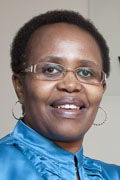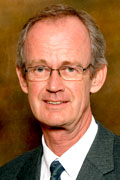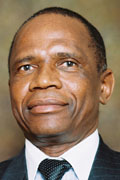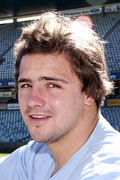Latest News Archive
Please select Category, Year, and then Month to display items
20 August 2025
|
Story Dr Annelize Oosthuizen
|
Photo Supplied
 Dr Annelize Oosthuizen, Subject Head of Taxation in the School of Accountancy, University of the Free State.
Dr Annelize Oosthuizen, Subject Head of Taxation in the School of Accountancy, University of the Free State.
With the two-pot retirement system having been effective from 1 September 2024, it is important to demystify certain aspects to prevent an unpleasant surprise when you retire. Although there are other complex rules, this article was simplified and does not deal with exceptions. It also does not deal with members of a provident fund who were 55 years of age or older on 1 March 2021. Furthermore, reference to retirement funds is to a pension fund, provident fund or a retirement annuity fund (a discussion on preservation funds is therefore excluded).
Three, not two pots
Firstly, there are effectively three pots and not two.
- The first pot is referred to as the vested component. You will only have this component if you were a member of a retirement fund prior to 1 September 2024. This component consists of the member’s interest (balance) in the retirement fund on 31 August 2024 (the day before the implementation of the two-pot system) after being reduced with the amount of the seed capital that was transferred to the savings pot (see below). This seed capital amount was calculated as the lesser of 10% of the value of the member’s interest in the fund on 31 August 2024 or R30 000. No further contributions will be allocated to this component from 1 September 2024. Upon retirement, one-third of the funds in this component can be taken in the form of a lump sum. The balance will be transferred to the retirement component below and will be paid out in the form of monthly annuities.
- The second pot is the savings component. The opening balance of the savings component is the seed capital that was transferred from the vested component above. Thereafter, from 1 September 2024, one third of your monthly contributions to the retirement fund are allocated to this component.
- The third pot is the retirement component. From 1 September 2024, two-thirds of your monthly contributions to the retirement fund are allocated to this component. The funds in this component can only be accessed upon retirement (i.e. after reaching your retirement age, which is stipulated in the fund rules). Furthermore, upon retirement, the money in this pot is only paid out in the form of monthly annuities (i.e. monthly pensions) and no lump sum can be taken from this pot unless its total value is R165 000 or less.
Withdrawals are taxed unfavourably
Secondly, withdrawing from the savings component before retirement has adverse tax implications.
- From 1 September 2024 onwards, one is allowed to make an annual withdrawal (minimum of R2 000) from the savings component even if you have not yet reached your retirement age and although you are still employed. It is, however, important to remember that such withdrawals are taxed very unfavourably since they are taxed by using the normal progressive tax tables that apply to your other income such as salary. If you wait for your retirement and only withdraw from this savings component upon retirement, the first R550 000 will be tax-free and withdrawals above R550 000 will be taxed at rates much lower than the current progressive tax rates applicable to other income.
- Upon retirement, only the money in the savings component is allowed to be taken as a lump sum. If you therefore withdraw all the money from this pot annually prior to retirement, you will not have any funds available to access as a lump sum on retirement and will only have access to the monthly annuities payable from your retirement component.
Less funds available
Lastly, for those members who have a vested component (i.e. who became members of the retirement fund before 1 September 2024), the old rules still apply to the funds in that component. Therefore, upon retirement, you will still be able to take one third of the value of your vested component as a lump sum. The balance will be transferred to the retirement pot and will be paid out in the form of monthly annuities.
To summarise, even though it might appear lucrative to withdraw from your savings component annually, it is advised that you refrain from doing it unless you really need the funds to fulfill basic needs. Withdrawing prior to retirement has the following adverse consequences:
- Money withdrawn from the savings component is taxed at higher rates than what would have applied had you reached your retirement age and retired. You will therefore not make use of the R550 000 tax-free option.
- You will have less funds available to pay out as a lump sum on retirement. As a simple calculation, had you not withdrawn R30 000 in a single year, conservatively calculated at a rate of 5%, this R30 000 would have grown to R79 599 (R139 829 if a rate of 8% is used) calculated over 20 years that can be withdrawn tax-free when utilising the R550 000 tax-free portion on retirement.
Heinrich Brüssow named as Kovsie Alumnus of the Year
2010-08-19
 |
 |
 |
 |
| Ms Jackie Ntshingila |
Prof. Teuns Verschoor |
Prof. Benito Khotseng |
Heinrich Brüssow |
|
The Alumni of the University of the Free State (UFS) have named Heinrich Brüssow as the Kovsie Alumnus of the Year for 2009.
At the same time, Ms Jackie Ntshingila, the Provincial Manager of the Small Enterprise Development Agency (SEDA), will receive the Kovsie Alumni Cum Laude Award, while the Executive Management Award will be awarded to Prof. Teuns Verschoor, acting Senior Vice-Rector at the UFS, and Prof. Benito Khotseng. These awards, which are made annually to honour alumni of the UFS for their exceptional achievements and contributions to the university, will be awarded on Friday, 3 September 2010.
Heinrich is currently one of the most formidable Free State Cheetahs players. During the international Super 14 Competition he was a pillar of strength for his team in many respects. He was one of the outstanding players in the match between the Springboks and the Lions. He has established himself in the triumphant Springbok team as one of the definite choices. He received the Man-of-the-Match award in the Springboks’ victory over the All Blacks on 25 July 2009, as well as the awards as the Provincial Player of the Castle SA 2009 Tournament, the SA Rugby Young Player of the Year 2009 and the 2009 Sports24 Performer of the Month.
Ms Ntshingila will receive the Kovsie Alumni Cum Laude Award for her role in the business development sector in the Free State and particularly the empowerment of women in the business sector. Her constructive inputs on various committees have lead to the outstanding role that she has played to expand SEDA in the Free State from 1 to 56 members and five branches during a relatively short period.
Prof. Verschoor will receive an Executive Management Award for the tremendous role he has played in many student matters, research, transformation and other university matters. Recognition is also given to the role that he fulfilled as acting Rector of the university during 2008-2009. In this he has emphasised his passion and commitment towards the university. In 2004 he received a Centenary Medal for management, diversity and student transformation.
Prof. Khotseng will receive an Executive Management Award for his influential and leading role during the 1990s, when the UFS was established as an outstanding institution. Prof. Khotseng played a leading and influential role as Vice-Rector: Student Affairs. He has served on the UFS Council from 1993 and in 1994 he accepted the position as Senior Manager: Strategic Programmes at Kovsies. He managed transformation and the marketing of the university in the black community with distinction. In 1995 he helped to diffuse the conflict in residences and to create a culture of learning. With the help of the Multicultural and Transformation Committees he taught persons to respect and understand one another. In 2004 he also received a Centenary Medal.
The coveted Kovsie Alumni Awards will be handed over at a Kovsie Alumni breakfast. All alumni are welcome at the breakfast which will take place in the Reitz Hall of the UFS Centenary Complex. The cost is R50 per person and includes a delicious breakfast. If you are interested in attending, please contact Annanda Calitz at 051 401 3382 or ficka@ufs.ac.za
Media Release
Issued by: Mangaliso Radebe
Assistant Director: Media Liaison
Tel: 051 401 2828
Cell: 078 460 3320
E-mail: radebemt@ufs.ac.za
19 August 2010